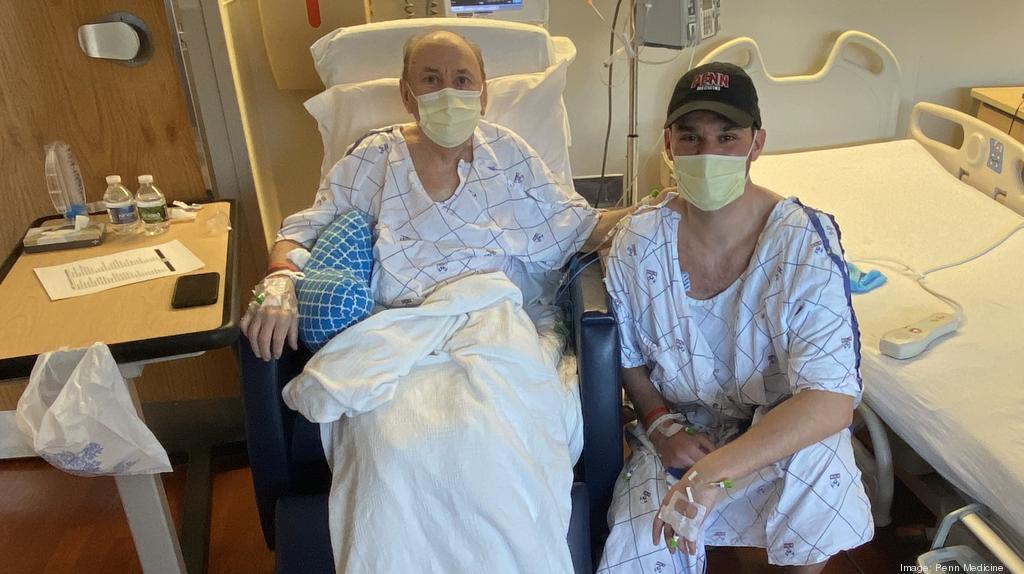PHILADELPHIA – The University of Pennsylvania Health System has formed a joint venture with Nashville-based Evergreen Nephrology to improve care for patients with chronic and end-stage kidney disease while containing costs through innovative approaches to provide more care, including dialysis, at home, reduce the need for emergency department visits and hospitalizations, and get kidney transplants sooner. Penn Medicine is the first academic medical center to partner with Evergreen.
Effective January 1, 2022, the joint venture – a 50/50 partnership between UPHS and Evergreen –contracts with the Centers for Medicare and Medicaid Services to provide care for Medicare patients with kidney disease, including those receiving dialysis. The effort is the latest in Penn Medicine’s series of value-based population health strategies that redesign payment approaches to shift more financial risk to providers than traditional, fee-for-service based care models. In turn, these approaches reward providers to deliver more efficient care that keeps patients healthier at home, avoiding unnecessary doctor’s visits and hospitalizations.
With more than 37 million Americans suffering from chronic kidney disease and thousands dying each year while waiting for kidney transplants, new approaches are critical, and this common condition provides fertile ground for development of innovative models of both care for the disease as well as payment to hospitals and providers. UPHS CEO Kevin B. Mahoney points to the joint venture as the platform for a new national model to reverse the runaway costs associated with dialysis and other care for end-stage kidney disease, for which Medicare spends nearly $50 billion a year, on top of $87 billion in costs for patients with earlier-stage disease.

“We need to take a new approach to caring for kidney disease patients – an approach that incentivizes providing what we know to be the very best care for patients,” he said. “That means a holistic care plan that delays the need for dialysis, helps them get dialysis more conveniently, at home, or gets them a kidney transplant early so they never have to sit in that dialysis chair at all. Our new partnership with Evergreen will change patients’ lives, and be an important pathway to tremendous health care cost savings.”
Services available to patients who become part of the new program through the joint venture may include help from dieticians, social workers, pharmacists, home health aides, and case managers, who will provide wraparound services to augment their medical care provided by Penn Medicine. Forty-three Penn Medicine nephrologists will be part of the program, and approximately 600 patients will be offered the opportunity to sign up in the coming months.
“It is a tremendous honor for Evergreen Nephrology to partner with Penn Medicine, a world-class academic medical institution. Our partnership is simple and based on one goal: to transform kidney care for people living with kidney disease,” said Adam Boehler, Executive Chairman and Co-Founder of Evergreen Nephrology. “We founded Evergreen Nephrology because we know the existing models of care didn’t tackle the root of the problems for many patients with kidney disease—the need for full, comprehensive care to help them better manage the disease. Evergreen’s new model of care, combined with the superior medical knowledge of Penn Medicine, will be exciting for all patients fighting kidney disease.”
Additional value-based care initiatives underway at Penn Medicine include its ongoing contract with Independence Blue Cross, which includes a groundbreaking framework based on shared accountability for both quality and cost of care. These elements were first added to UPHS and Independence’s contract in 2012, later growing to include a slate of programs focused on reducing the number of patients who return to the hospital within a month of going home. Within a year, that program led to a 25 percent improvement in readmission rates. Other efforts address care improvements and cost containment in areas such as radiation oncology and a program to identify emergency department patients who can recover safely at home with support via telemedicine and remote monitoring.
For kidney patients, Penn Medicine physicians see fresh opportunities through the Evergreen partnership to provide resources and education that help patients choose care pathways that improve their quality of life at each step of their disease. That includes help managing their diets, blood pressure, medications, and other factors that may delay or prevent the need for dialysis, as well as education about the potential benefits of receiving dialysis at home. They also hope to help pave more pathways to kidney transplant through living organ donation and approaches like paired kidney exchanges that widen the pool of organs available for transplant by linking patients in need with donors from across the region or country.
“Kidney disease is complex, and there are many things to manage which can impact progression of patients’ disease and how it is treated,” said Lawrence Holzman, MD, chief of the Renal-Electrolyte and Hypertension division in Penn’s Perelman School of Medicine. “Patients and their families need education, encouragement, and professional guidance to make decisions, and we are looking forward to offering them a new suite of support to keep them healthier and change the paradigm for kidney disease care.”
